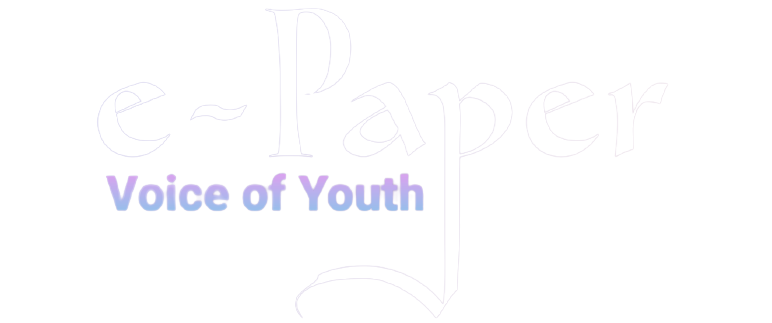Christine Lagarde signalled that she would help elevating the European Central Financial institution’s predominant rate of interest in July, main economists to declare that the primary improve for greater than a decade is sort of sure to go forward.
The ECB president mentioned in a speech in Slovenia on Wednesday that she anticipated the financial institution to cease increasing its stability sheet by bond purchases “early within the third quarter” and to then elevate charges “a while” after that, which “may imply a interval of just a few weeks”.
Lagarde added that “actions that show our dedication to cost stability” can be important in guaranteeing companies’ and households’ expectations of future inflation didn’t rise additional and take a look at the central financial institution’s credibility. Eurozone inflation hit a document 7.5 per cent in April — nearly 4 occasions the central financial institution’s goal of two per cent.
The remarks are a transparent signal that Lagarde helps the rising variety of governing council members which have known as for a 25 basis-point rise within the ECB’s deposit fee on the July 21 coverage assembly. The deposit fee is now minus 0.5 per cent and has been in unfavorable territory since 2014, when it was lowered to assist combat the area’s debt disaster.
Economists have been bringing ahead their forecasts of when the central financial institution will elevate charges. Reinhard Cluse at UBS on Wednesday predicted a 25bp improve in July can be the primary of seven such strikes to carry its deposit fee to 1.25 per cent by subsequent yr. Frederik Ducrozet, a strategist at Pictet Wealth Administration, wrote on Twitter {that a} July fee rise by the ECB appeared “a carried out deal”.
ECB officers are more and more involved that the fallout from Russia’s invasion of Ukraine will preserve inflation excessive for longer and embed expectations of rising costs amongst shoppers and firms.
Lagarde mentioned the warfare was “prone to speed up two ongoing structural adjustments which, through the transition they entail, may result in additional unfavorable provide shocks and value pressures”.
The ECB’s new quarterly forecasts to be printed in June had been “more and more pointing in the direction of inflation being not less than on the right track over the medium time period”, she added. Luis de Guindos, vice-president of the ECB, predicted eurozone inflation can be as excessive as 5 per cent on the finish of this yr — greater than its forecast in March for inflation of 4 per cent within the fourth quarter of the yr.
A number of different ECB governing council members have spoken out in current days to say they might help beginning a collection of fee rises in July and a majority on the 25-member rate-setting physique appears to favour such a transfer.
Fabio Panetta, essentially the most dovish member of the chief board, is the one one to argue in opposition to a July fee improve, preferring to attend till second-quarter progress figures are printed per week later. Austria’s hawkish central financial institution governor Robert Holzmann even mentioned it may elevate charges in June, although he’s seen as an outlier.
Frank Elderson, the most recent member of the ECB’s govt board who joined in January, mentioned earlier on Wednesday that it may contemplate elevating charges in July, “dependent as at all times on the incoming knowledge”. He added {that a} eurozone recession was not envisaged, offering the battle in Ukraine didn’t escalate.
The hawkish shift brings the ECB nearer according to the US Federal Reserve and the Financial institution of England, which each raised charges just lately. Nonetheless, the eurozone’s financial policymakers nonetheless lag far behind their friends within the US and UK within the cycle of elevating rates of interest and had been the one ones of the trio to deploy unfavorable charges as a coverage device.
Lagarde mentioned the Ukraine warfare was “making a problem for financial coverage by tempering progress charges and pushing up inflation additional”.
Whereas “it appears to be like more and more unlikely the disinflationary dynamics of the previous decade will return”, she mentioned consumption and funding had been nonetheless beneath pre-pandemic ranges within the eurozone, which means the ECB would goal to “normalise” reasonably than “tighten” financial coverage — signalling that it could solely elevate charges slowly to proceed supporting exercise.
“After the primary fee hike, the normalisation course of will likely be gradual,” she mentioned, including “flexibility will likely be key” — a reference to a doable “new instrument” the central financial institution has mentioned to sort out any sudden surge of a rustic’s borrowing prices by shopping for its bonds.
The extra borrowing prices traders demand to carry Italian debt over that of Germany climbed greater than 2 share factors final week for the primary time in nearly two years, underscoring considerations that any ECB tightening of financial coverage will primarily have an effect on eurozone international locations with greater debt burdens.
Some ECB officers have mentioned there’s little greater rates of interest can do to sort out the provision constraints pushing up power and meals costs, however board member Isabel Schnabel mentioned on Wednesday in Vienna that buoyant demand was as a lot guilty for prime inflation.
Schnabel mentioned an enormous improve in family financial savings, which rose by $2.7tn within the US and €900bn within the eurozone through the pandemic, had allowed corporations to extend their costs, including it was “time to place an finish to the measures that had been activated to combat low inflation”.


